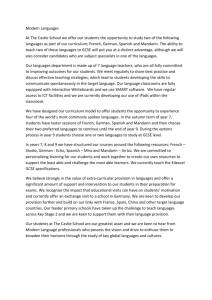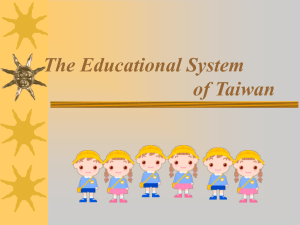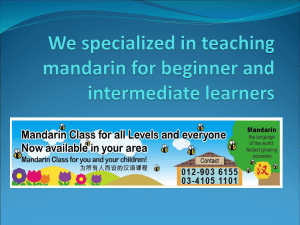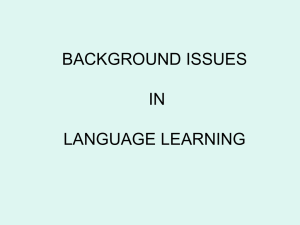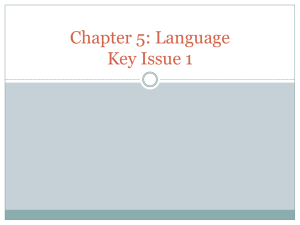The End of Motivation Stephen Krashen New Routes, vol 55: 34
advertisement
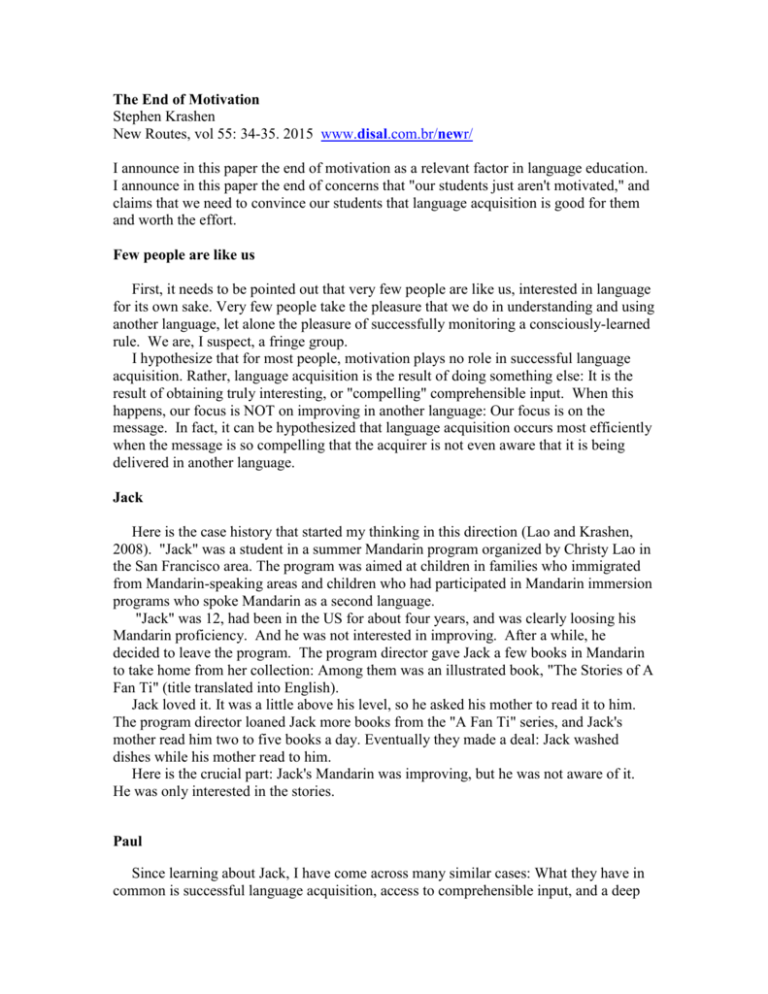
The End of Motivation Stephen Krashen New Routes, vol 55: 34-35. 2015 www.disal.com.br/newr/ I announce in this paper the end of motivation as a relevant factor in language education. I announce in this paper the end of concerns that "our students just aren't motivated," and claims that we need to convince our students that language acquisition is good for them and worth the effort. Few people are like us First, it needs to be pointed out that very few people are like us, interested in language for its own sake. Very few people take the pleasure that we do in understanding and using another language, let alone the pleasure of successfully monitoring a consciously-learned rule. We are, I suspect, a fringe group. I hypothesize that for most people, motivation plays no role in successful language acquisition. Rather, language acquisition is the result of doing something else: It is the result of obtaining truly interesting, or "compelling" comprehensible input. When this happens, our focus is NOT on improving in another language: Our focus is on the message. In fact, it can be hypothesized that language acquisition occurs most efficiently when the message is so compelling that the acquirer is not even aware that it is being delivered in another language. Jack Here is the case history that started my thinking in this direction (Lao and Krashen, 2008). "Jack" was a student in a summer Mandarin program organized by Christy Lao in the San Francisco area. The program was aimed at children in families who immigrated from Mandarin-speaking areas and children who had participated in Mandarin immersion programs who spoke Mandarin as a second language. "Jack" was 12, had been in the US for about four years, and was clearly loosing his Mandarin proficiency. And he was not interested in improving. After a while, he decided to leave the program. The program director gave Jack a few books in Mandarin to take home from her collection: Among them was an illustrated book, "The Stories of A Fan Ti" (title translated into English). Jack loved it. It was a little above his level, so he asked his mother to read it to him. The program director loaned Jack more books from the "A Fan Ti" series, and Jack's mother read him two to five books a day. Eventually they made a deal: Jack washed dishes while his mother read to him. Here is the crucial part: Jack's Mandarin was improving, but he was not aware of it. He was only interested in the stories. Paul Since learning about Jack, I have come across many similar cases: What they have in common is successful language acquisition, access to comprehensible input, and a deep interest in the message. Christy Lao has contributed another case (Lao and Krashen, 2014): Paul grew up in a Cantonese-speaking family in California and is bilingual in English and Cantonese. Despite having little or no motivation to acquire Mandarin, today, as a teen-ager, Paul speaks Mandarin quite well. His competence comes from watching TV and CDs: cartoons when he was little, then TV series and movies in Mandarin, thanks to TV shows and CDs his dad brought home regularly. Lao and Krashen (2014) estimate that over the years Paul watched, with great interest, more than 500 hours of movies and TV shows in Mandarin. (It should be pointed out that Mandarin and Cantonese share some common vocabulary, but they are not completely mutually comprehensible. With the help of context, Cantonese speakers are able to understand a limited amount of Mandarin and vice versa.) Paul never watched TV shows or CDs in order to improve his Mandarin. In fact, Paul had no obvious motivation to improve his Mandarin. At all times, his motivation was entertainment and interest in content. His acquisition of spoken Mandarin was a byproduct, a result. For a similar case of the acquisition of English through cartoons by a Finnish young girl, see Jylha-Laide and Karreinen (1993). Recovered dyslexics Of course, compelling compehensible input works in developing literacy as well, in both first and second languages. It may be that the only real path to literacy development is getting "lost in the book" (Nell, 1988). Here is one spectacular report dealing with English literacy among native speakers of English. Fink (1996) studied twelve people who had been considered to be dyslexic when they were young. All learned to read very late: Eleven of the fomer dyslexics learned to read between ages ten and twelve and one did not learn to read until grade 12. All learned to read quite well. In fact, nine published creative or scholarly works and one won a Nobel Prize. Compelling comprehensible reading was the path for all of them: “As children, each had a passionate personal interest, a burning desire to know more about a discipline that required reading. Spurred by this passionate interest, all read voraciously, seeking and reading everything they could get their hands on about a single intriguing topic" (pp. 274275). Their goal, I suggest, was not to "learn to read." Their goal was to find out more about something that was interesting to them. Let's take advantage of the natural process Most people don't care about language acquisition. For most people, it's the story and/or the ideas that count. Instead of trying to motivate our students by urging them to work hard and reminding them how important it is to know English, let's take advantage of the natural process, and make sure they have access to input that they find compelling, in class and outside of class. References Fink, R. 1995/96. Successful dyslexics: A constructivist study of passionate interest reading. Journal of Adolescent & Adult Literacy 39 (4): 268-80. Jylha-Laide, J.and Karreinen, S. 1993. Play it again, Laura: Off-air cartoons and videos as a means of second-language learning. In: K. Sajavaara and Takala, S. (Eds.) Finns as Learners of English: Three Studies Jyvaskya: Jyvaskyla Cross-Language Studies no. 16. Pp. 89-145. Lao, C. and Krashen, S. 2008. Heritage language development: Exhortation or good stories? International Journal of Foreign Language Teaching 4 (2): 17-18. Lao, C. and Krashen, S. 2014. Language acquisition without speaking and without study. Journal of Research of Bilingual Education Research and Instruction 16(1): 215221. Nell, V. 1988. Lost in a Book. New Haven. Yale University Press.


